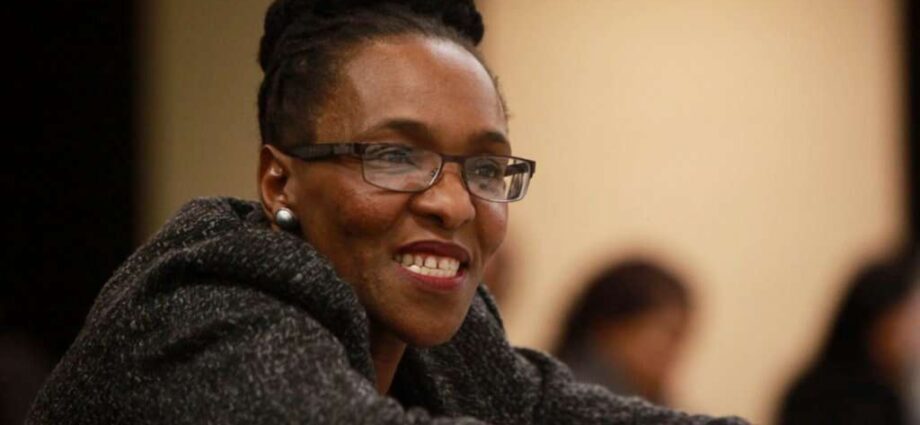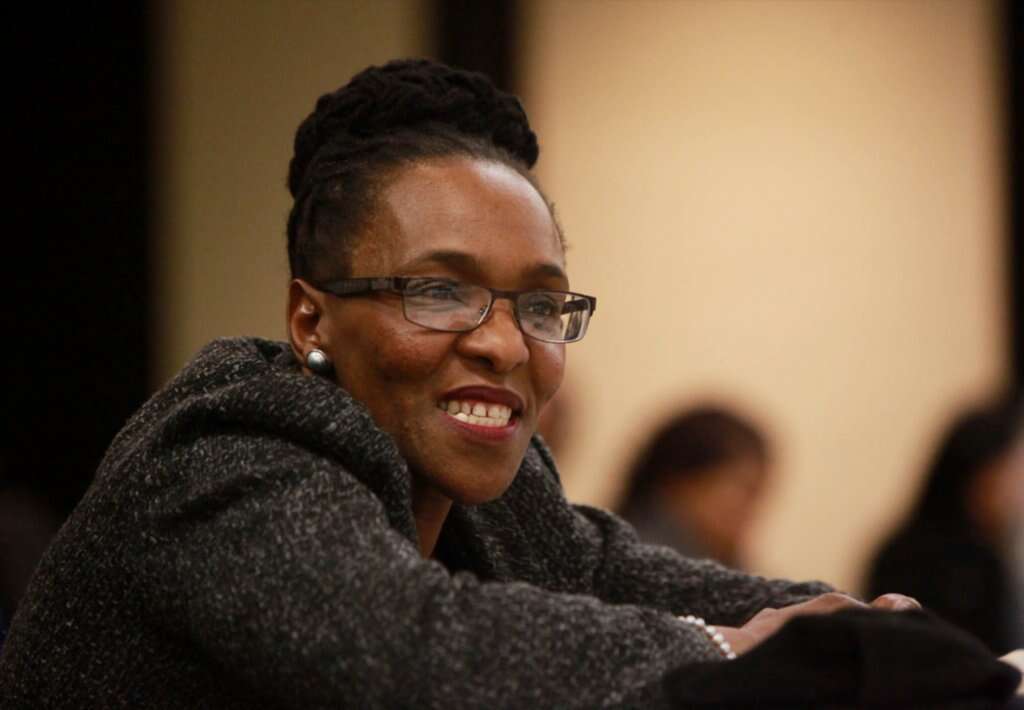Mandisa Maya is set to lead South Africa’s judiciary for the next 10 years, after the Judicial Service Commission (JSC), which oversees senior judicial appointments, determined on Tuesday to recommend her appointment as chief justice by President Cyril Ramaphosa.
As the first woman to hold such a position in the country’s history, it seems like a reward for a judge who stayed away from controversy.
However, the position itself is increasingly the focus of political contention, as is the entire legal system, part based on Roman-Dutch and part on English jurisprudence.
Since the multi-party negotiations of 1992/93, some radical elements have been criticising those political agreements, along with the resulting constitution, as effectively entrenching land theft and other colonial-era excesses, as well as the apartheid race-based system which shaped the modern urban landscapes of this still-divided country.
Read: Deep-rooted graft tops list for South Africa ‘failing state’
But these voices were drowned out by the vast majority’s acceptance of a new deal in what has been the ‘land of apartheid’, the biases embedded in an inherited legal system being left to post-apartheid administrations to sort out.
But for the likes of former president Jacob Zuma and his newly minted uMkhonto we Sizwe (MK) party, only a complete rewrite of the entire structure of the law is sufficient.
Zuma himself is still facing 783 counts of fraud, corruption and money laundering charges arising from alleged kickbacks during a late 1990s arms deal.
But he is desperate to have both the ‘Eurocentric’ laws of South Africa changed, and the negotiated constitution thrown out just as much as he demands a reversion to something akin to slightly modernised traditional tribal law. Recently, the courts struck his name off the ballot over his past conduct including a jail term her served for contempt of Court.
Along with MK, Julius Malema and his Economic Freedom Fighters (EFF) have blown hot and cold over South Africa’s legal structures.
Malema and a few of his close lieutenants have also come in for legal scrutiny over possible state capture-style graft, or other alleged improprieties.
At one point, the EFF, which is overtly Pan-Africanist, was arguing against its own policies when anti-immigrant sentiments were running high amid further bouts of violent xenophobia.
Read: Mandela vision of Black unity fades as SA shuts door to migrants
The Party argued that the bar for successful amnesty applications was too low, and too many people were being allowed into the country.
The EFF stand seems more closely related to direct effects of the law on the party leaders than any underlying ideological issues, though it maintains a strong line that should it gain power, it will wield existing and any new laws with vigour, believing in the centralisation of power in a Marxist-Leninist state system.
Both MK and the EFF also say they want all major industries nationalised.
Put together, these two political alignments could garner at least a quatre of the vote in the elections due on Wednesday next week, according to latest opinion polls.
That may not be a direct or immediate threat to South Africa’s current legal framework.
However, there is a growing populist sentiment that ‘old colonial laws and systems must go’, even though most of those supporting such calls have little idea of the implications.
Outgoing Chief Justice Raymond Zondo was something of a ‘controversial’ choice, when appointed by President Cyril Ramaphosa in April 2022, despite being ‘next in line’ as Deputy Chief Justice.
This was due to his four-year stint as chair of the commission of inquiry into state capture graft, ironically signed into law by then outgoing president Zuma as one of his last official acts before being forced to resign by his own ruling African National Congress (ANC) party in 2018.
That means that Justice Maya’s new heights bring her the task of managing the politics related to the calls for a change in legal framework, together with the potential legal drams that may ensue over which way to go about change.
Born in March 1964 in the then apartheid-era ‘black homeland’ of Transkei, now the Eastern Cape province, Mandisa Muriel Lindelwa Maya was appointed Deputy Chief Justice of South Africa soon after missing out on the top slot in 2022 to Justice Zondo.
She has had a stellar career from humble beginnings and was formerly the president of the Supreme Court of Appeal from 2017 to 2022.
Initially a prosecutor and state law adviser, she was admitted as an advocate in 1994.
Former president Thabo Mbeki appointed her to the Supreme Court of Appeal in June 2006. In the appellate court, she was elevated to the deputy presidency in September 2015 and the presidency in May 2017.
She was the first black woman to serve in the Supreme Court of Appeal, as well as the court’s first woman deputy president and first woman president.















